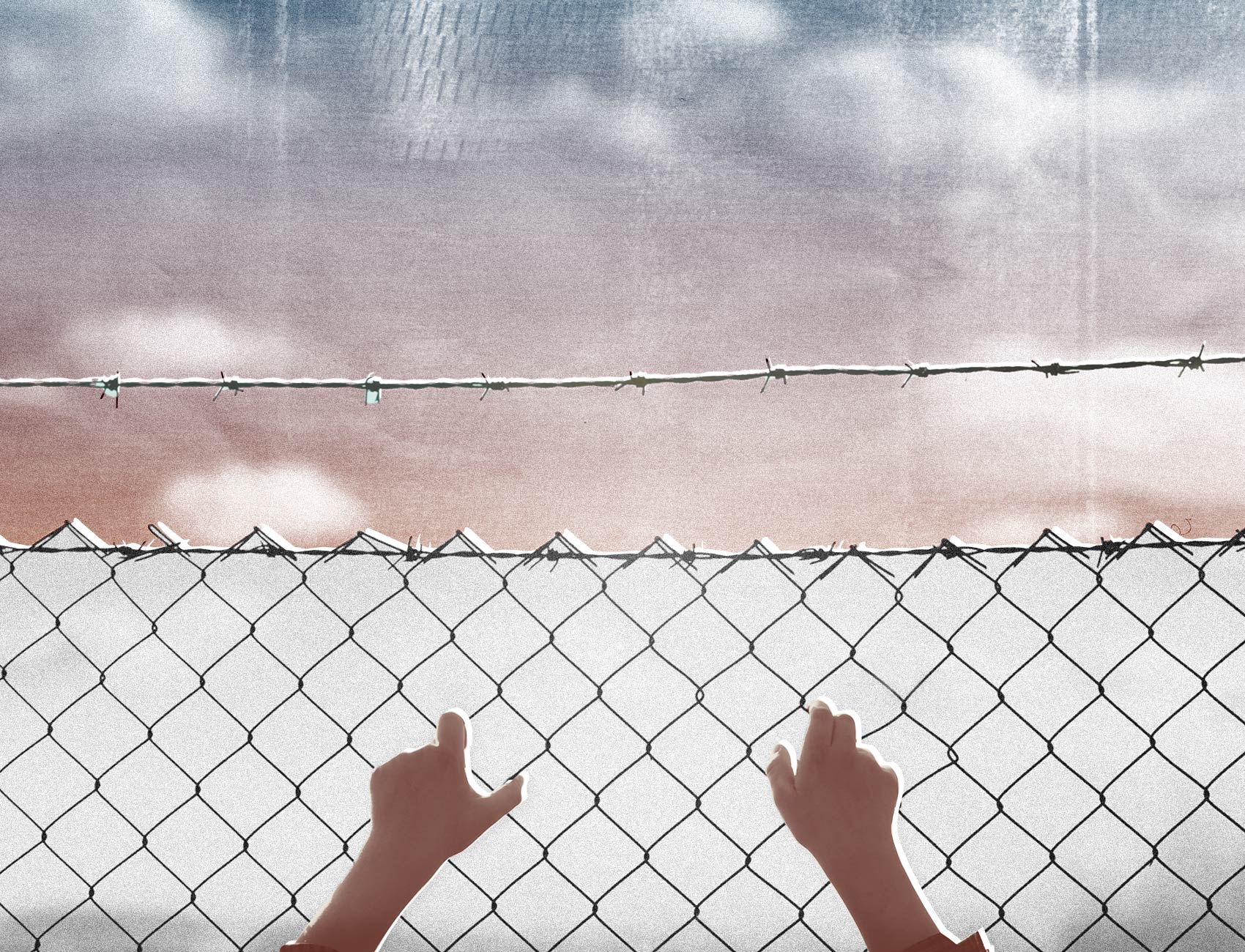Why The Biden Administration Must End Family Immigration Detention
It is impossible for the government to espouse a policy of “family unity” while immigrant detention still exists.

Most Americans have heard of the horrors of Trump’s “zero tolerance” family separation policy at the U.S.-Mexico border. But they may be less familiar with the nightmare migrant families face in America’s family immigration prisons after they leave the cages at the border. Since 2014, the United States has operated three such facilities, where children and their parents may be incarcerated for weeks, months, or years. At RAICES, I lead a team that offers free legal representation to families at one of these prisons in Karnes City, Texas.
Family prisons are strange, horrid places. While visiting clients before the COVID-19 pandemic began, I saw guards yell at children for rolling toys off the designated play mat. After a child accidentally drew on a table, the prison banned crayons for everyone. We weren’t allowed to share healthy snacks with hungry kids who couldn’t stomach the processed foods they were served inside. Detained moms were “written up” for breastfeeding in communal spaces. Once, I remember picking up a crying toddler, wondering if I would get in trouble for doing so, since the rules barred us from even touching the children. She felt just like my baby cousin on my hip.
Family detention has always meant family separation, well before the “zero tolerance” era made the government’s treatment of migrant families a political flashpoint during the Trump administration. To this day, children older than 18 are incarcerated in adult immigration facilities apart from their parents and minor siblings. Fathers are often imprisoned apart from mothers and young children. Even when two-parent families are detained in the same facility, their members are separated by sex. It is impossible for the government to espouse a policy of “family unity” while immigrant detention still exists.
Experts have tracked the devastating effects of incarceration on children since the government began to imprison families in 2014. My organization works with physicians and mental health care providers who warn that the conditions inherent to detention—physical confinement, the restrictions on liberty, the rigid hierarchy in a prison environment—can impact prefrontal cortex development in ways that may permanently affect social, behavioral, and psychological development. Children who experience imprisonment may be more likely to develop behavioral disorders or mental illness. The stress of prison can also impact a child’s body at the molecular level, potentially altering their DNA and increasing their risk of cancer and other diseases.
During the pandemic, pregnant mothers have been locked up without access to vital prenatal care. One mother spent a month imprisoned at Karnes along with her three-month-old infant, forced to navigate the challenges of new parenthood while sleeping in a dorm-style bunk bed.
Family imprisonment also damages the parent-child relationship that is so essential to child development. Parents are not allowed to make decisions for their children, like what their children eat, or when their children sleep or wake up. Prison guards berate moms and dads for letting their children play freely. A parent cannot give their children choices or teach them about consequences when ICE makes the rules.
When the Obama administration converted Karnes to a family prison in 2014, it said that detaining families was necessary in order to deter migration. This is a myth belied by the data; families migrate to escape persecution and economic and natural disasters, and annual apprehensions of family units have increased from approximately 70,000 in 2014 to nearly half a million in 2019. Furthermore, asylum-seeking families are not flight risks. Especially with legal representation, studies show that families appear in immigration court of their own volition. In fact, they have every incentive to do so—appearing at their hearings is their path to lawful status and protection in the U.S.
President Biden has already ordered the Department of Justice to end its use of private prisons. This is an encouraging first step, but it is not enough. Shutting down the family immigration prisons is a requisite measure not only to realize racial justice in America, but also to reverse course on the country’s history of dehumanizing migrants. The Biden administration must commit itself to addressing the root causes of migration, not perpetuate human rights violations in pursuit of a false sense of “security.”
Caging families in this manner is not cheap: The government projected that it would spend about $270 million to maintain the three family prisons in 2021. That money would be put to far better use providing migrant families with basic necessities such as food, housing support, medical care, and mental health care. This funding could also be diverted to provide public-defender style legal representation to all asylum-seekers.
President Biden has recognized that dignity and due process must be a part of America’s immigration process, and condemned the status quo as “draconian” and “grounded in fear and racism.” Undoing the Trump administration’s legacy should be the baseline upon which Biden creates a progressive immigration system for the 21st century. Due to COVID-19 protocols, we estimate that there are now fewer than 300 people imprisoned between the three facilities. With the detained family population at an all-time low, President Biden has a historic opportunity to close these prisons altogether. The stakes are too high for him to miss it.
Andrea Meza is the Director of the Family Detention Services Program at RAICES .
